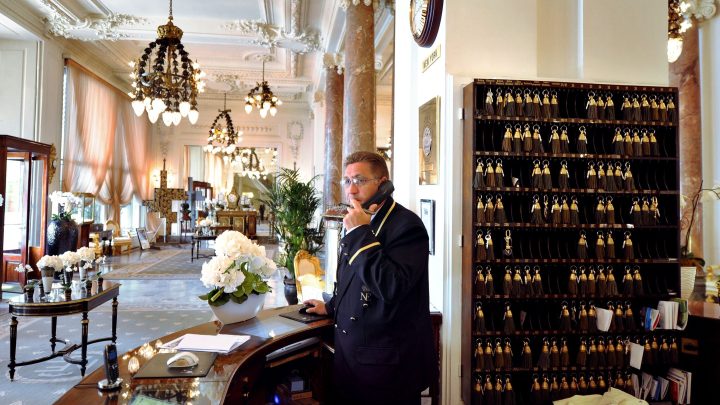
Smaller, independent hotels in Europe find it harder to bounce back from the pandemic
Smaller, independent hotels in Europe find it harder to bounce back from the pandemic

If it kinda seems like everyone was jetting off to Europe for a summer vacation this year, that’s not too far off. According to Statista, nearly two-thirds of the world’s tourists arrive in Europe. So, where do they stay?
Approximately 77% of European hotels are independently owned. Many of them are multi-generational family businesses. But these hotels are declining, according to Peter Lochbihler, global head of public affairs at Booking.com.
“What we have seen in our most recent study is that while generally travel is clearly back and we are heading to a record year, there is a separation between the chains — the big properties and the smaller, independent ones,” said Lochbihler. “So it’s positive overall, but it’s not quite as positive for smaller, independent properties.”
Peter added that, after the pandemic, when we were all allowed to travel again, the bounce-back was slower for many smaller hoteliers.
“Smaller businesses just struggle a little more with coming out of that,” he said. “Many of them have gone through an existential crisis and it was really about survival of often multi-generation businesses.”
Helen Heaton opened Castlewood House in 2005 in Dingle, a town in the southwest of Ireland right on the Atlantic. She’s noticed that some some family-run hotels are closing.
“Maybe they were a little bit older, and they were possibly planning on getting out anyway,” she said. Meanwhile, bigger hotel chains have been gaining ground.
“I’m from County Louth and there are one or two which would have been long established family-run businesses, and they’ve been bought by bigger chains,” Heaton said.
According to research by Booking.com and Statista, almost two-thirds of investments in the European accommodation sector are now done by hotel chains. And travelers are turning to those big chains too, Peter Lochbihler said.

“It’s convenience, it’s fear of dealing — when they book directly, for example — dealing with a small business, where they don’t accept their ways of payment. They might not accept that credit card,” he said.
And while growth can be good, Lochbihler said it can also be bad — especially if it pushes out the smaller guys.
“Diversity of the sector is definitely one of the attractiveness factors,” he said. “And if that were to change, I do believe that that Europe could lose some of that over time.”
But don’t worry: No matter how hard things can be, Helen Heaton and her family won’t be closing their hotel doors.
“We keep doing it now for as long as we can, because you want to do it and you want to do it to the very best of your ability,” she said.
And, with close to 3.5 independent hotels for every chain property in Europe, there’s plenty of small fish in this big pond.
There’s a lot happening in the world. Through it all, Marketplace is here for you.
You rely on Marketplace to break down the world’s events and tell you how it affects you in a fact-based, approachable way. We rely on your financial support to keep making that possible.
Your donation today powers the independent journalism that you rely on. For just $5/month, you can help sustain Marketplace so we can keep reporting on the things that matter to you.











